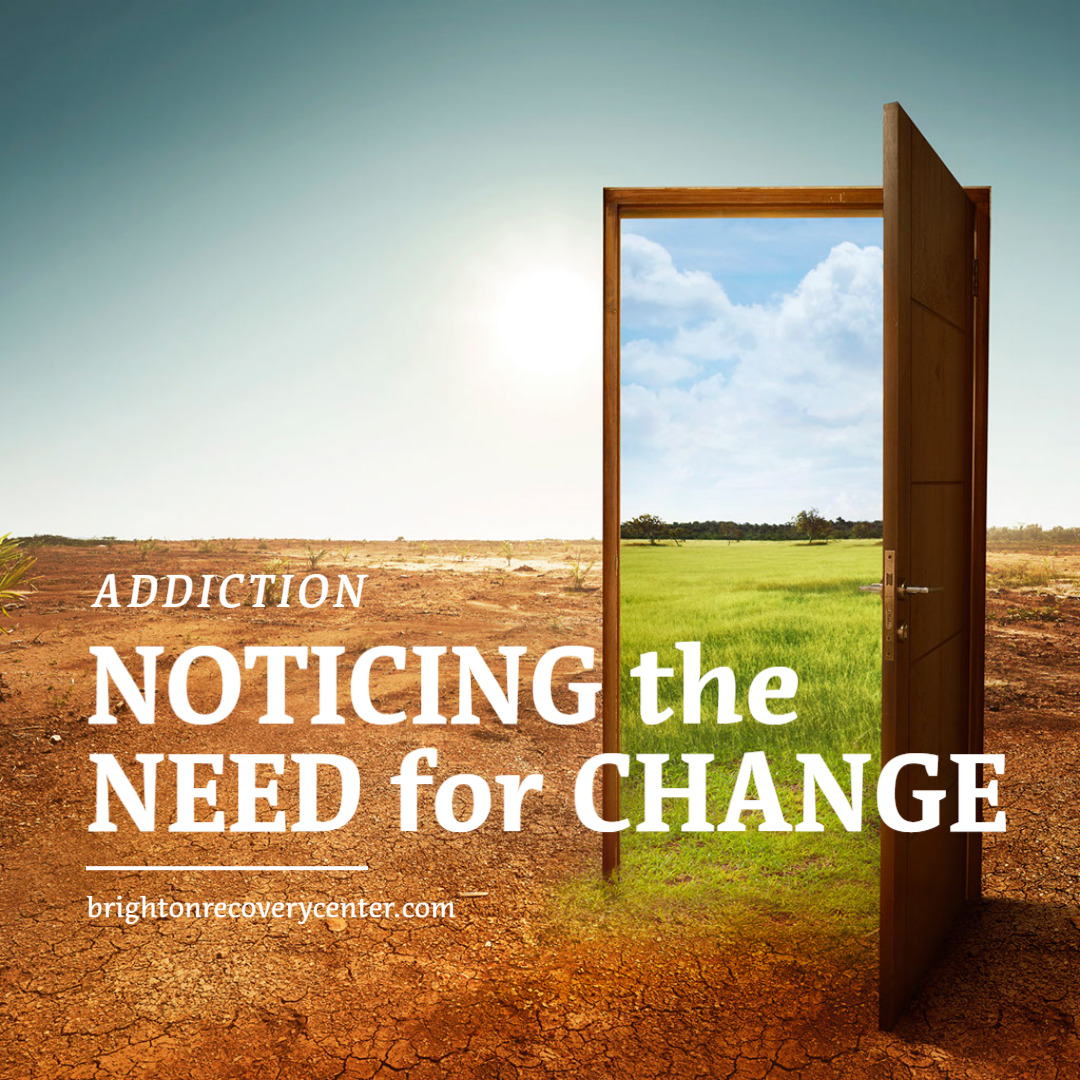Noticing the Need for Change

Recognizing that there needs to be a change in an individual’s life can be a challenging experience. Those suffering from addiction to drugs or alcohol may be in denial about how often they engage with these substances or may attribute personal or professional hardships to other sources rather than acknowledge the role that drugs or alcohol has to play. This denial can allow addiction to continue to develop and can facilitate even more dangerous situations that can further lead to social and professional consequences. Continued denial may also create financial or legal difficulties. While each person will be affected by drugs or alcohol in a different way, it is crucial to monitor your relationship with drugs or alcohol and genuinely consider the relationship you have with these substances, as well as your expectations surrounding them. Keeping evidence on an individual’s use can illustrate how they interact with these substances, as well as indicate when it may be time for a change.
A Change in Time
Noticing a need for change can first involve when a person begins to consider drinking or using drugs during the week, or throughout their day. There can be a common culture around going to the bar after work, or that a cold beer can help take the stress out after a particularly difficult day. However, this can promote two different issues, the first of which is that it can begin to prompt a person to consider drinking as their first reaction to stress. As stressful days create the feeling of needing to go to the bar or to meet with friends for drugs, this becomes routine. It can be very easy to find stresses at work, or in life, when a person may be actively looking for them. Having the use of an addictive substance as one’s primary coping mechanism also can introduce a more intense emotional state, with anxiety, depression, or emotional outbursts of frustration or irritation being more common, which can continue to facilitate the feeling that a person needs to engage with their primary coping mechanism at an even greater frequency, or at earlier times in the day.
However, noticing this change in time also comes in a different form. If those who use drugs or alcohol as a coping mechanism for their work stresses feel that it is in any way successful, they may begin to instead preemptively engage in these activities to take the stress off, rather than use them reactively after a stressful day. This can mean that a person may begin to have drinks in the morning before work with the expectation that it is going to be a stressful, difficult day, and want to take that edge off before they have even arrived at the workplace. Noticing this change in attitude towards drinking and using it as a preemptive coping strategy may indicate that an individual may need to seriously consider their relationship with an addictive substance and may need to address a serious change in their lives regarding its use.
Noticing an Expectation
Noticing a shift in one’s expectations around their use of drugs or alcohol may also be indicative that there needs to be a change in one’s life. Dangerous expectations surrounding these addictive substances can include expecting that the use of drugs or alcohol will undoubtedly help any situation, or may take the form of a person only attending events where there will be drinking or drugs, or at least at a place where these practices are accepted. Expecting these situations or crafting one’s day around their expectation to engage with drugs or alcohol can be another warning sign that there is a need for change.
Making the Change
Noticing these elements requires a great deal of introspective analysis. Those suffering from addiction may not be aware of the negative effects of their drinking, or may genuinely not be keeping track of how much they use at a time. They also might not realize how frequently they are using throughout the week. Objective evidence around how much one’s use of drugs or alcohol has affected their life can be a very powerful realization. Looking at one’s own bank account can provide objective evidence not just on how much a person may be spending on fueling these destructive coping mechanisms, but also on how often they may be purchasing them through each week.
Keeping bottle caps for each drink that a person ingests can be another way to objectively measure one’s own need for change. Keeping them and counting them up at the end of a week can showcase how much a person may truly be drinking, even if they don’t notice it at the time. These are powerful tools, and employing these self-checks can help each individual catch and address a developing addiction before further damage to one’s personal or professional life can occur. Reaching out for change in one’s life begins with identifying a problem, and employing these checks can help each individual objectively gauge their own relationship with drugs or alcohol, creating the genuine picture of one’s use that is needed to pursue the changes for a healthier, happier lifestyle.
Noticing the need for change in your own life can be a difficult experience to process. However, it is also a sign that you are ready to take your first step towards a healthier, sober future. At Brighton Recovery Center, we can help you create a personalized approach to your own recovery that aligns with your needs and goals, as well as your unique experience with drugs or alcohol. We offer a number of varied programs, from detox and sober living to partial hospitalization programs and intensive outpatient services, allowing us to help you further individualize your time with us. Multiple, proven therapeutic approaches are utilized regularly, from movement therapy, meditation, and yoga — all on our beautiful campus that facilitates healing and community between professionals and peers alike. For more information on how we can personalize your time with us, or to talk to a caring, trained staff member about your unique situation, call us today at (844) 479-7035.



